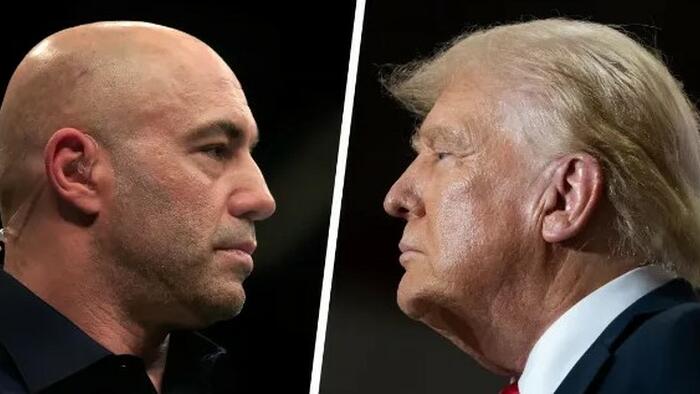Just before the highly anticipated Robotaxi event on October 11, 2024, Elon Musk stirred excitement on Twitter by announcing that an interview between Joe Rogan and Donald Trump “will happen.” This post came in response to a Zero Hedge article discussing the urgency for Rogan to secure an interview with Trump before the upcoming election. The contributor, Quoth the Raven, expressed frustration over Rogan’s reluctance to engage with Trump in light of the political landscape, implying that Rogan’s voice is crucial in addressing the political situation. Musk’s endorsement hinted at the potential for this event to unfold, catching the attention of followers who eagerly await developments in this high-profile media encounter.
Rogan, known for his extensive podcast platform, has notably avoided interviewing Trump over the years despite repeated inquiries. He previously stated his disinterest in helping Trump gain a platform, asserting that he had turned down opportunities to have him as a guest. However, signs emerged in mid-2023 that he may have softened his stance, expressing curiosity about Trump’s perspectives during conversations with others. This shift in Rogan’s attitude raised hopes for a future interview, especially given the increasing political relevance of Trump’s statements and actions as the election approaches.
The discussions surrounding Rogan’s potential interview with Trump have taken on new significance, especially as Rogan has shown support for other political figures aligned with Trump, such as RFK Jr. and Tulsi Gabbard. This evolution in Rogan’s political affiliations suggested that there might be more openness to interviewing Trump, especially as the 2024 election nears and the dynamics of the political discourse shift. The argument made by Quoth the Raven highlighted the idea that an interview would allow Rogan to address important issues directly with Trump and possibly challenge him on his views, creating substantial discourse in the lead-up to the election.
Critics of Rogan’s hesitance to interview Trump argue that his decision is myopic and fails to recognize the broader context of the political moment. Quoth the Raven articulated that Rogan’s personal feelings should not overshadow the potential ramifications of allowing Trump a platform to discuss key issues, especially given the intense divided opinions surrounding the upcoming election. The call for Rogan to set aside personal bias and engage with Trump was underscored by the belief that such an interview could have meaningful consequences for the political conversation during an election where every voice matters.
Moreover, the pressure for an interview increased as Trump’s appearances on various podcasts demonstrated his willingness to engage in diverse media formats. Critics suggested that the absence of an interview between Rogan and Trump would be detrimental to Rogan’s credibility, particularly after the election concludes. The sentiment was that not facilitating dialogue with Trump could diminish Rogan’s discussions about the political landscape, leaving him in a position where he might appear unwilling to confront the realities of the situation. Quoth the Raven urged Rogan to act before it becomes too late to make an impactful conversation with Trump possible.
In summary, the anticipation surrounding a potential Rogan-Trump interview embodies the complexities of modern media and political engagement. With Musk signaling support for such a dialogue and the political stakes at a high, the situation has escalated into a critical discourse on the responsibilities of influential media figures like Rogan. The interplay between personal sentiment and public duty highlights the necessity for open conversations in a polarized society, especially as both Trump and Rogan navigate the intricacies of an evolving electoral landscape. As the weeks count down to the election, the pressure mounts for Rogan to engage with Trump, presenting a unique opportunity for dialogue at a pivotal moment in U.S. politics.

